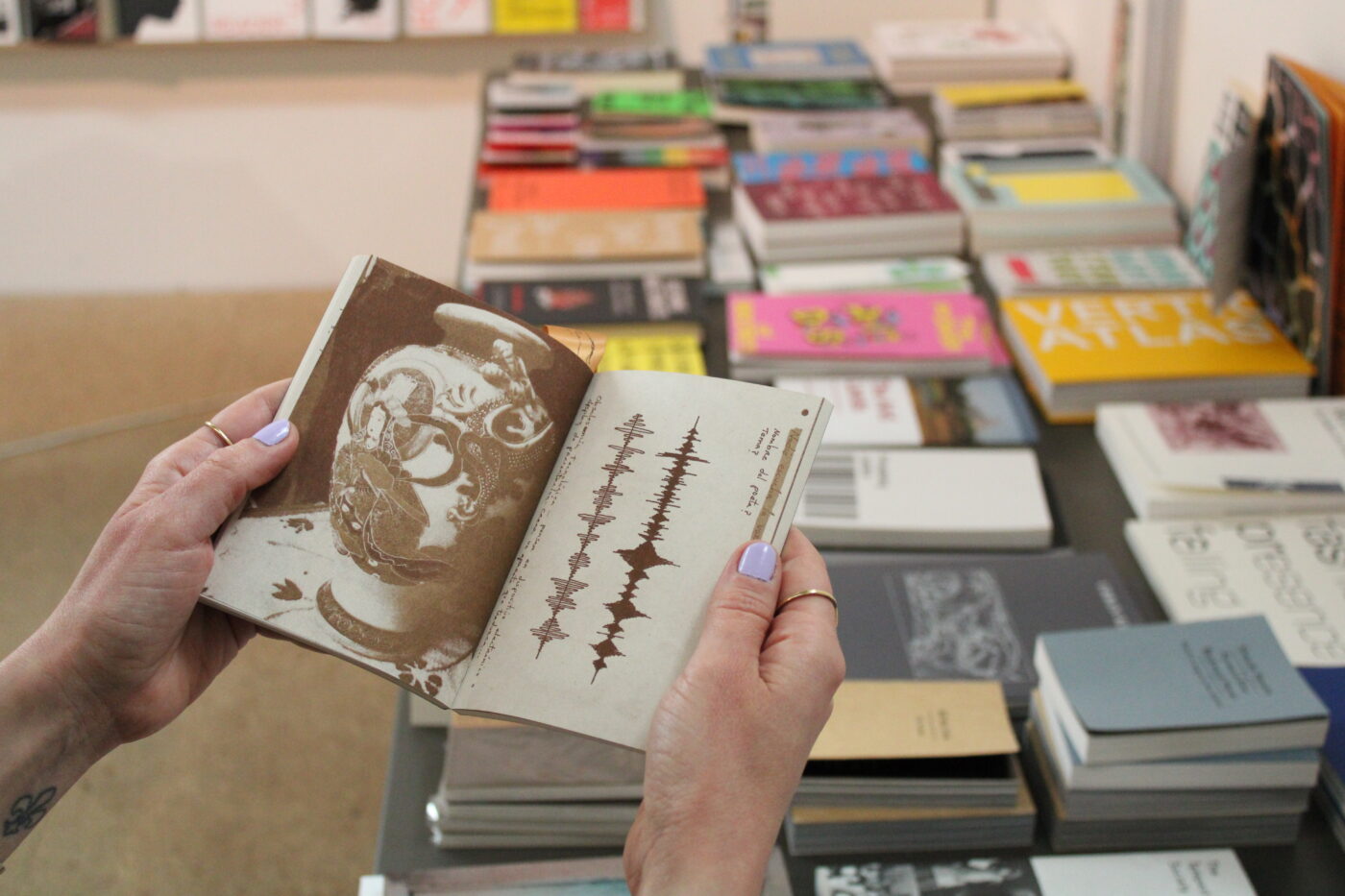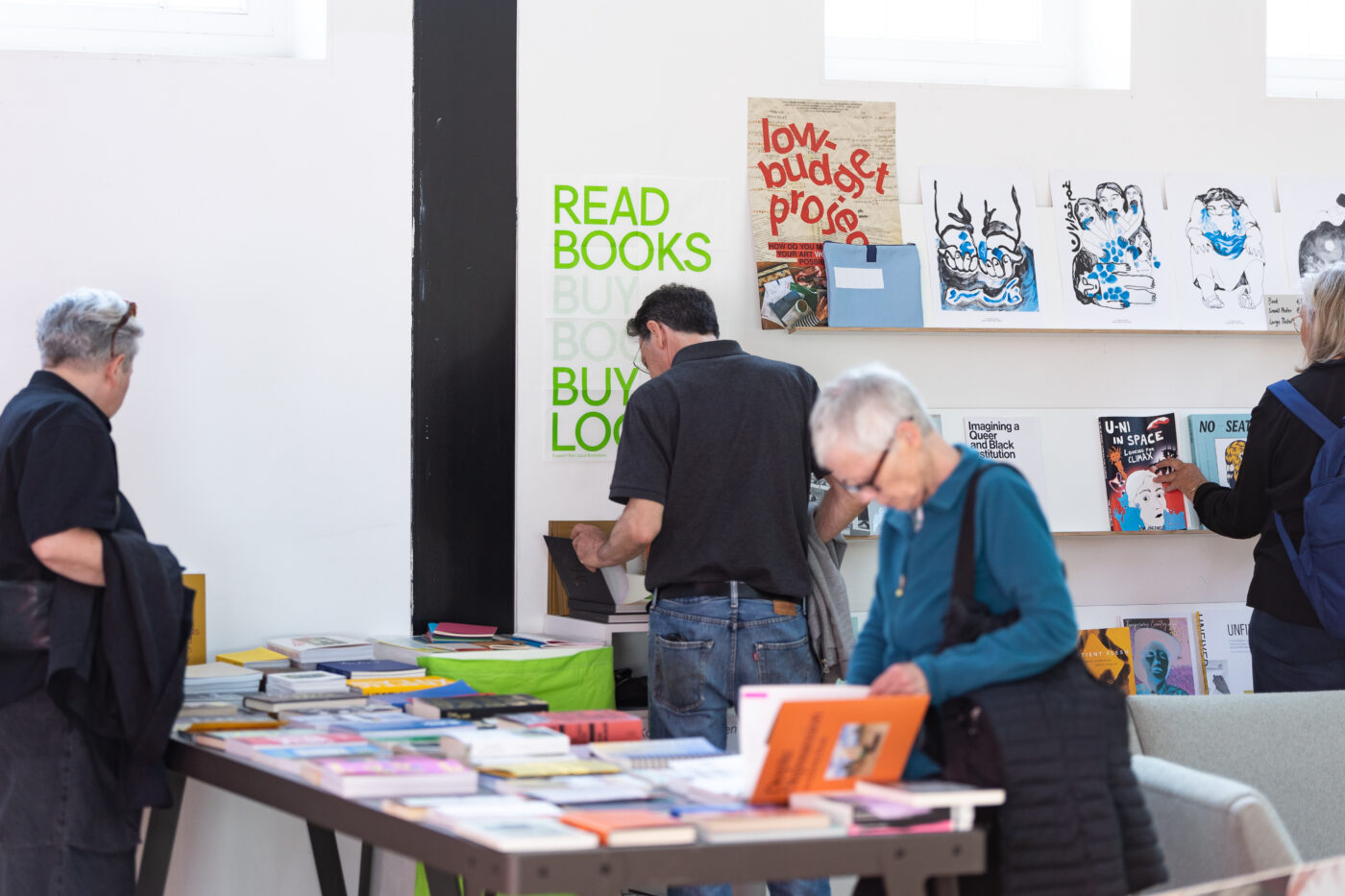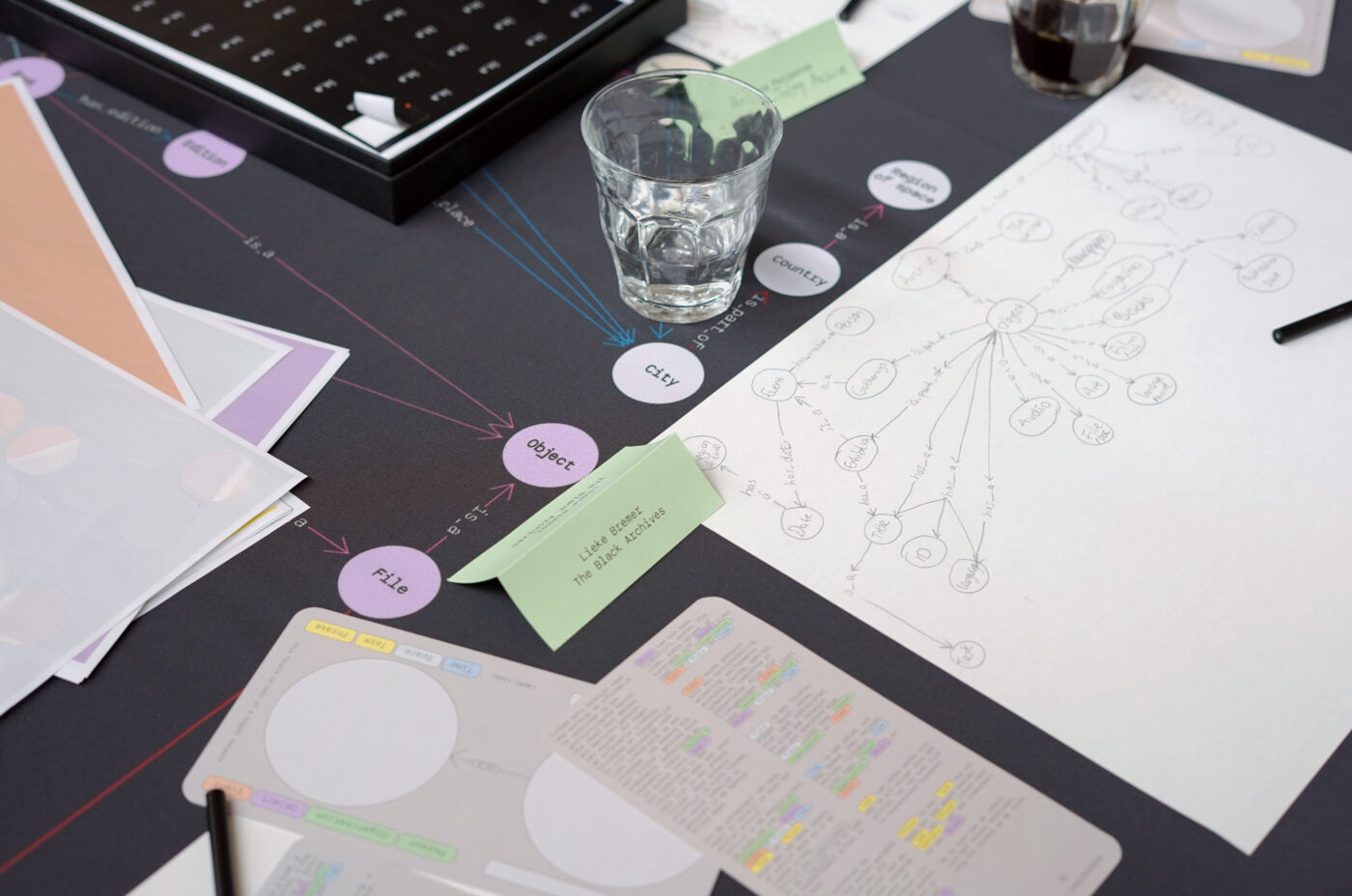From Archiving to Publishing: Framer Framed's 'New Social'
Framer Framed has embarked on a new journey, venturing into publishing and collaborating with artists and other organisations to produce engaging publications that elucidate our exhibitions and programmes. As a platform for contemporary art, visual culture, and critical theory and practice, Framer Framed is aiming to expand our reach through the written word. Our publications compile, summarise, illuminate and expand on the themes and topics of their related exhibitions, enabling them to live on beyond their presentation. With an additional emphasis on hybrid accessibility, Framer Framed is investigating new ways of working as a cultural organisation both offline and online.
Read more about Framer Framed’s publishing endeavours below.
The New Social
With the project The New Social: Hybrid Strategies for Cultural Spaces, Framer Framed, in collaboration with IMPAKT, Hackers & Designers and Archival Consciousness, has been investigating new methods and techniques to make the experiences, audiences and content of online and offline productions more consistent. Cultural productions such as live-casting and publications are increasingly moving into both online and offline domains. Central to The New Social’s research is the question of how cultural organisations can develop new techniques to better bring these two domains together: in-house and for the long term.
Since 2021, thanks to support from the Innovation Labs scheme, Framer Framed has worked on several concrete results, including the opening up of its archive. A digital archive can be considered ‘a network of connections’ which digitally brings together a plethora of ‘bits and bytes’ from a cultural institution’s active past. Archiving is often less common for ‘digital born’ organisations than for those with paper archives. Longer-established arts organisations typically have a paper archive with an archivist who knows the collection well and makes it searchable. When these archives are at risk of being lost due to dissolution, an urgency arises and archives are often transferred. This should also be a matter of course for digital archives. But how do we maintain the digital archive and also make it accessible — how can we think about the life cycle of the digital archive?
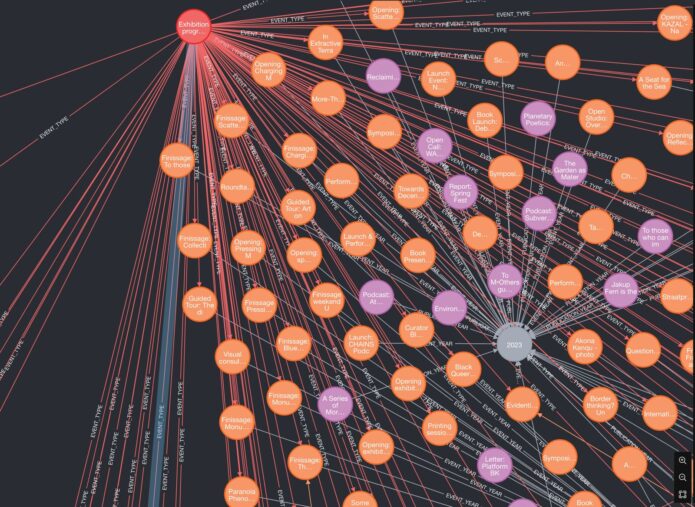
Schematische weergave van de netwerkrelaties in het archief van Framer Framed. Afbeelding: Archival Consiousness
From archiving to publishing
The most striking outcome of the project was achieved in collaboration with Archival Consciousness; the unlocking of Framer Framed’s digital archive through a ‘browser-based hybrid publication tool’. This newly developed application allows us to use the archive for various purposes, ranging from network analyses for researchers to opening up the archive in the form of (digital) publications.
Co-publishing
In the past few years, Framer Framed has co-published books in collaboration with other organisations. In 2022, Framer Framed began with two interconnected volumes, Art for (and within) a Citizen Scene & vol. 2 Be Water, My Friend in collaboration with the Netherlands-based publisher Onomatopee.
Art for (and within) a Citizen Scene examines art that is primarily active in the context of daily processes. By shifting our attention away from artistic practices based on object production and individual successes, what can other kinds of practices bring about? Artists and cultural practitioners, mostly from South/East Asia, connect and share their insights and experiences through lively conversations and co-creation in digital workshops. Through anthropological fieldwork and critical analysis, the second volume looks at different forms of socially engaged artistic practices in China that address social issues while avoiding explicitly opposing political authorities.
Interested in the behind-the-scenes of making the publication? Listen to the interview with co-editor Emily Shin-Jie Lee from the Framer Framed podcast.

Two Diaries
Together with the Van Abbemuseum in Eindhoven, Framer Framed produced Two Diaries: Gluklya & Murad during the exhibition To those who have no time to play (2022).
Gluklya, a visual and performance artist living and working in Amsterdam, and Murad Zorava, a Kurdish activist and poet currently living in Europe, tell the story of an unexpected encounter. They met in a Dutch asylum centre, a former prison on the edge of Amsterdam. Together, they came to understand what migration means, what language allows and how art in its different forms can serve as a cry of anger and a path to self-knowledge and peace.
Published by Walther König, Two Diaries: Gluklya & Murad is not only about two individuals’ lives but also about how art shapes and supports people and carries them through their most difficult times.
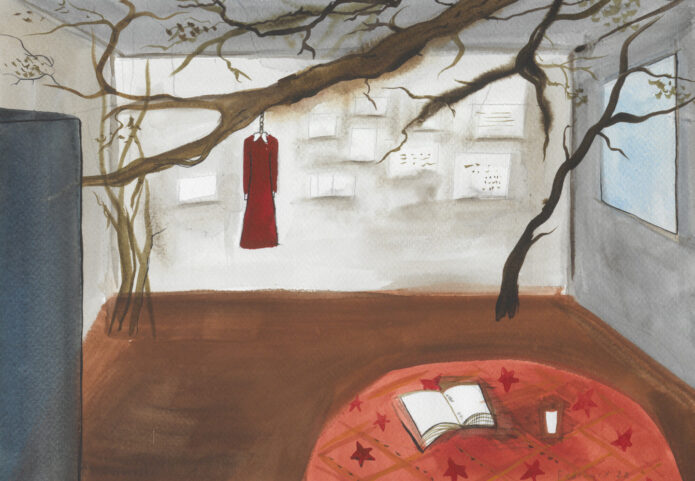

To those who have no time to play by Gluklya, curated by Charles Esche.
Photos: Marlise Steeman / Framer Framed
Colonial Toxicity
The exhibition Performing Colonial Toxicity, co-produced by Framer Framed and Amsterdam performance art organisation in If I Cant’ Dance, I Don’t Want to Be Part of Your Revolution was accompanied by a new publication by Samia Henni.
Her publication Colonial Toxicity: Rehearsing French Radioactive Architecture and Landscape in the Sahara (2024) brings together nearly six hundred pages of materials documenting this violent history of France’s nuclear bomb programme in the Algerian desert. Between 1960 and 1966, the French colonial regime detonated four atmospheric atomic bombs, thirteen underground nuclear bombs and conducted other nuclear experiments in the Algerian Sahara, whose natural resources were being extracted in the process. This secret nuclear weapons programme, whose archives are still classified, occurred during and after the Algerian Revolution, or the Algerian War of Independence (1954–1962).
Meticulously culled together by the architectural historian from across available, offered, contraband, and leaked sources. The book is a rich repository for all those concerned with histories of nuclear weapons and engaged at the intersections of spatial, social and environmental justice, as well as anticolonial archival practices.
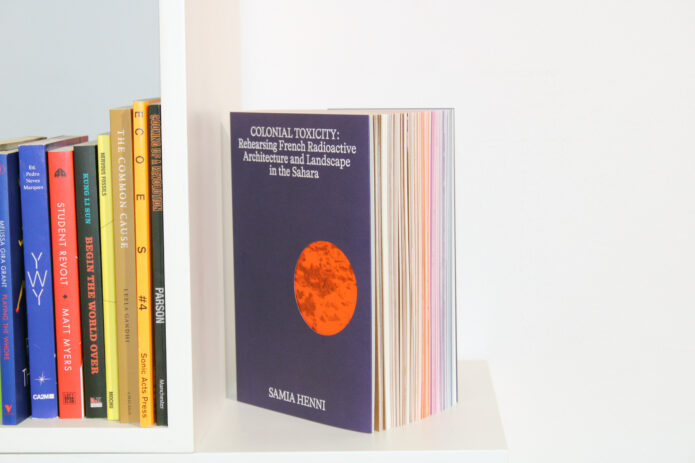
Colonial Toxicity: Rehearsing French Radioactive Architecture and Landscape in the Sahara by Samia Henni. Photo: Evie Evans / Framer Framed
The CICC Book marks our first entirely in-house publication, produced with the hybrid publishing tool designed by Remco van Bladel and Mariana Lanari of Archival Consciousness.
Hybrid publishing tool
The first publication generated entirely in-house, from the digital archive via self-designed software*, is a comprehensive catalogue of the 2021 exhibition Court for Intergenerational Climate Crimes (CICC). CICC is an ongoing collaboration between Framer Framed, Indian academic, writer, lawyer and activist Radha D’Souza and Dutch artist Jonas Staal. The project consists of a large-scale installation in the form of a tribunal prosecuting intergenerational climate crimes. During hearings, witnesses provide evidence of past, present and future climate crimes. As such, the tribunal rejects the linear, individualised narratives that underpin the current justice system.
Individuals and collectives that contributed to the publication include: Blue Planet Project (Canada), SOMO – Stichting Onderzoek Multinationale Ondernemingen (Netherlands), Manchester International Law Centre (England), Kenya Land Alliance (Kenya), Oyu Tolgoi Watch (Mongolia), Pueblos Indígenas Amazónicos Unidos en Defensa de sus Territorios (Brazil), Réseau d’Information et d’Appui aux ONG Nationales (Congo), Stop Arms Trade – European Network Against Arms Trade, Synergie Nationale des Paysans et Riverains du Cameroun (Kameroun), Vettiver Collective, WALHI West Java (Indonesia), Watch The Med (Germany) and more.
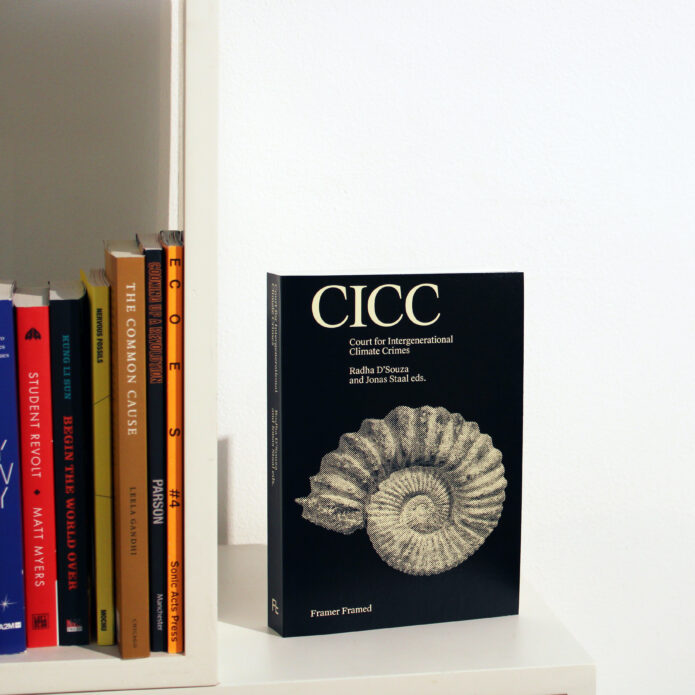
The CICC Book in the Framer Framed bookshop. Photo: Evie Evans / Framer Framed
Files of evidence and testimonies have been transcribed and form part of Framer Framed’s digital archive. The newly developed application can unlock this digital archive in the form of an interactive website and printable PDF, which will take shape into a tangible publication after a print run.
Read more about the book here, or order it online in our webshop!
Subversive Publishing Strategies
However, The New Social didn’t stop just there. Framer Framed asked the founder and editor-in-chief of Errant Journal, Irene de Craen, to conduct a series of interviews for the publication A Very Short and Incomplete Guide to Subversive Publishing Strategies and the Framer Framed podcast. Check out the series and introduction here!

A Very Short and Incomplete Guide to Subversive Publishing Strategies
Going Hybrid
As part of a longer research project into the future of hybridity for the cultural field initiated by the Institute of Network Cultures (INC), Framer Framed team members Ashley Maum and Ebissé Wakijra recorded a special podcast episode entitled Going Hybrid — A Deep Dive into Cultural Publishing and Programming. They delve into hybrid cultural programming and publications in the post-pandemic world. Listen here.
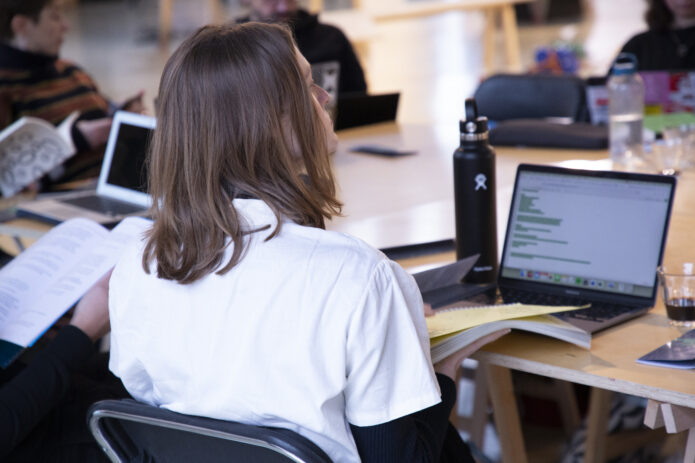
INC Conference. In-between Media: Hybrid Tactics in the Crisis Era. Photo: Sonia González
Archipelagic Affects
In 2022, Framer Framed teamed up with the Jan van Eyck Academie, Maastricht, aiming to provide an artist coming from abroad with an enriched residency experience. The first participant was Cuban artist Yornel J. Martínez Elías. His Artist Takeover in Limestone books led to the publication, Archipelagic Affects co-published by Jan van Eyck and Framer Framed.
Conceived by Yornel, researcher Emily Shin-Jie Lee, and in collaboration with Taiwanese novelist Huang Chong-Kai, Archipelagic Affects interweaves visual and textual materials created in different time-spaces. Together, they form a shared travelogue that documents how cultures and worlds cross paths through an art residency experience.
Reflecting on how words connect worlds, and how publishing practices generate new content and correlations. This booklet highlights the importance of art residencies in creating new confluences and solidarity networks to sustain cultural production and dissemination within and beyond national boundaries. If we consider an art residency as an island where a group of strangers from different backgrounds temporarily inhabit, how can these unfamiliar strangers make their time together meaningful? Perhaps further create an archipelago of solidarity beyond geographical boundaries after leaving the island.
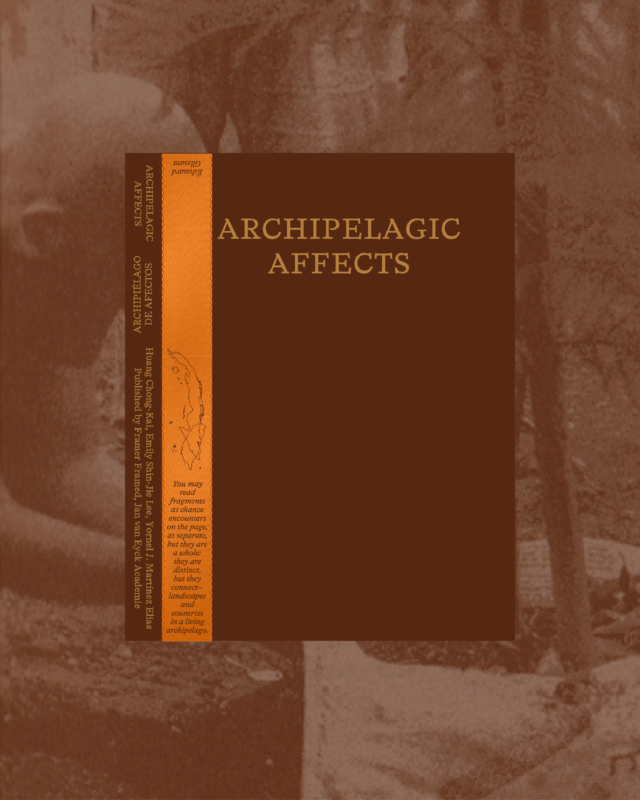
The publication, design by Limestone Books co-founder Chen Jhen, is available in two bilingual versions (Spanish/Chinese; Spanish/English).
Werkplaats Molenwijk
In 2023 Framer Framed celebrated 5 years of Werkplaats Molenwijk, our project space in Amsterdam Noord. To mark the occasion, we published Kunst in de Molenwijk, edited by Sietske Roorda. A cultural and artistic history of the Molenwijk neighbourhood is combined with texts on artworks from previous residents of Werkplaats Molenwijk. Since then, the residency of Golrokh Nafisi and Ahmadali Kavidar has resulted in another beautifully illustrated story borne from encounters with inhabitants of the Molenwijk. Walvistraan: A Love Story in a Time of Extinction and Isolation is a poetic and multilayered narrative across cultures, generations and species.
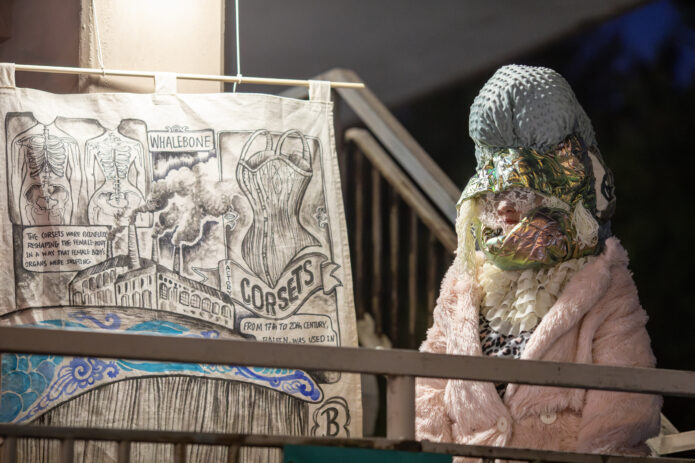
Opening van Presentatie: Walvistraan (2023) by Golrokh Nafisi in Werkplaats Molenwijk. Werkplaats Molenwijk is een projectruimte van Framer Framed, Amsterdam. Foto: © Marlise Steeman / Framer Framed.
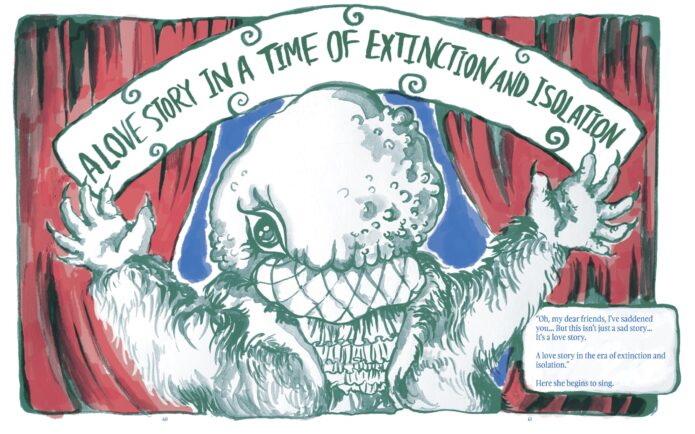
Walvistraan: A Love Story in a Time of Extinction and Isolation by Golrokh Nafisi and Ahmadali Kadivar (2024) Page preview 60-61
Shop
It’s possible to buy all Framer Framed publications through our online shop, or visit our exhibition space to see our larger selection of titles. The physical Framer Framed bookshop is curated by Philippa Driest of KIOSK Rotterdam, Het Fort van Sjakoo and the team members of Framer Framed.
Acknowledgements
The New Social: Hybrid Strategies for Cultural Spaces is made possible thanks to the support of InnovatieLabs #1 : from a multidisciplinary platform that promotes and disseminates knowledge about sustainable materials, to a development program aimed at makers who want to experiment with mixed reality theater techniques.
InnovatieLabs is supported by Stimuleringsfonds Creatieve Industrie and CLICKNL.
- Framer Framed - Webshop
Links
Bookshop Selection / CICC / Subversive Publishing /
Exhibitions
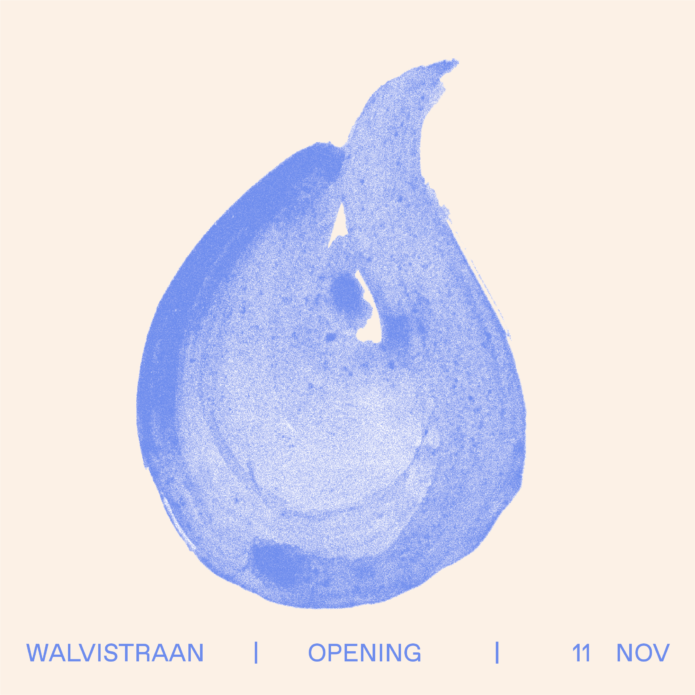
Presentation: Walvistraan
By Werkplaats Molenwijk artist in residence Golrokh Nafisi
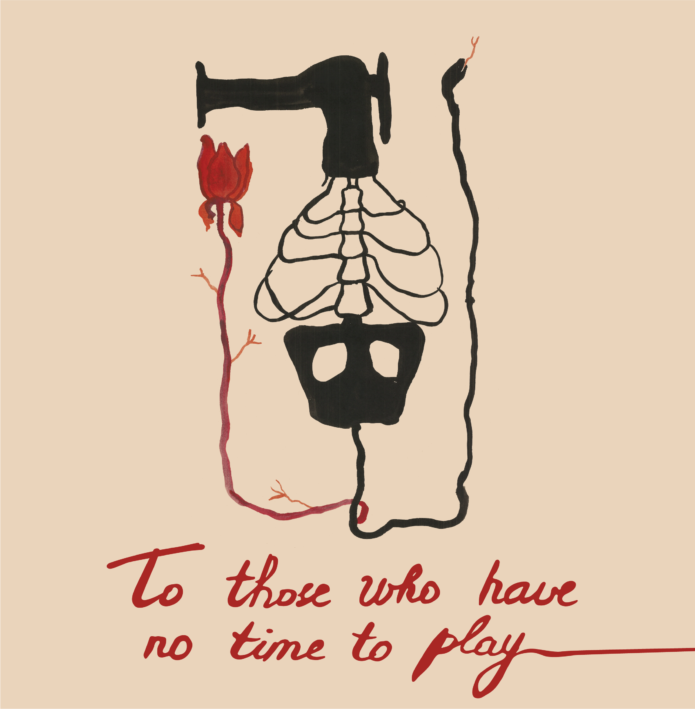
Exhibition: To those who have no time to play
A Solo Exhibition by Gluklya
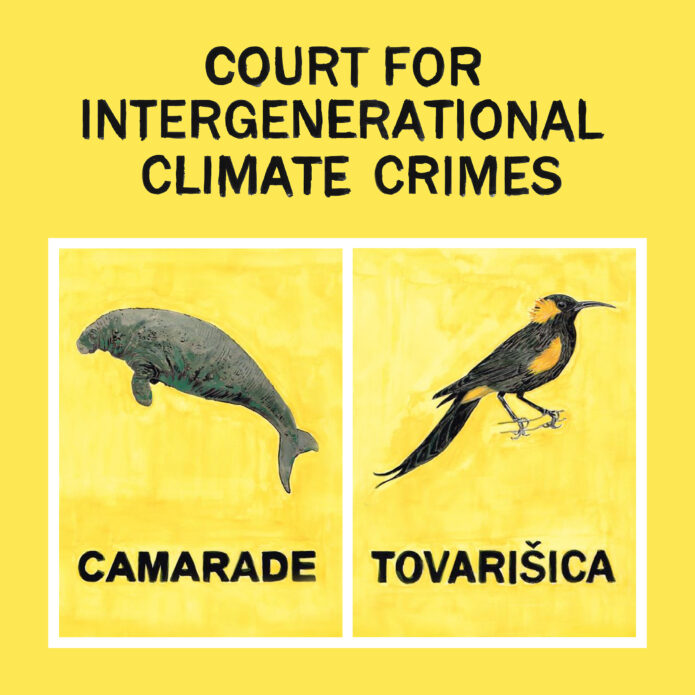
Exhibition: Court for Intergenerational Climate Crimes
A project by Radha D'Souza and Jonas Staal
Agenda
Book Launch: Walvistraan
Official book launch of Walvistraan: A Love Story in a Time of Extinction and Isolation by Golrokh Nafisi and Ahmadali Kadivar, written during their 2023 residency in Werkplaats Molenwijk
Book launch: CICC — War Crimes are Climate Crimes
Call to action and book launch for the new publication Court for Intergenerational Climate Crimes
Finissage: Performing Colonial Toxicity
Finissage programme for the exhibition Performing Colonial Toxicity including a book launch of Samia Henni's newest publication.
The New Social: Hybrid Strategies for Cultural Spaces - at Dutch Design Week 2023
Part of the exhibition Innovatie Labs #1: The Living Archive in Klokgebouw, Eindhoven
Artist Takeover: 'Archipelagic Affects' by Yornel J. Martínez Elías
A program around the Framer Framed and Jan van Eyck Academie resident at Limestone Bookstore
Symposium: In-Between Media - Hybrid Tactics in The Crisis Era
A two-day symposium on hybrid media tactics and togetherness in the field of art and activism.
New Ways of Reading III - Publishing Experiments for All
Publishers and visitors reflect on the perspective of the readers and writers that emerged during the sessions
Network
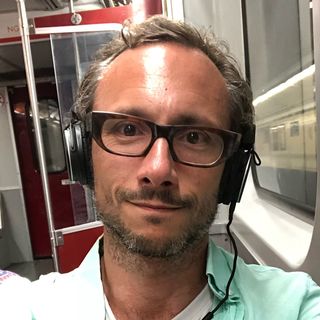
Remco van Bladel
Designer

Mariana Lanari
Artist
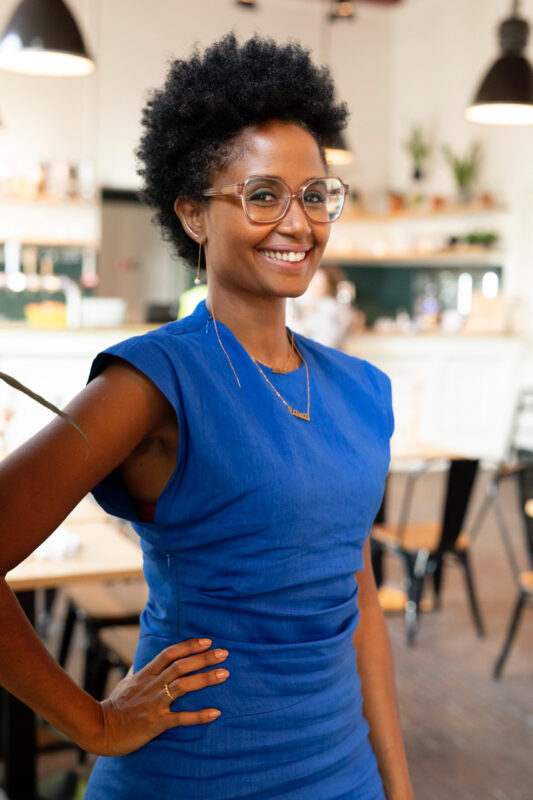
Ebissé Wakjira
Content and publications
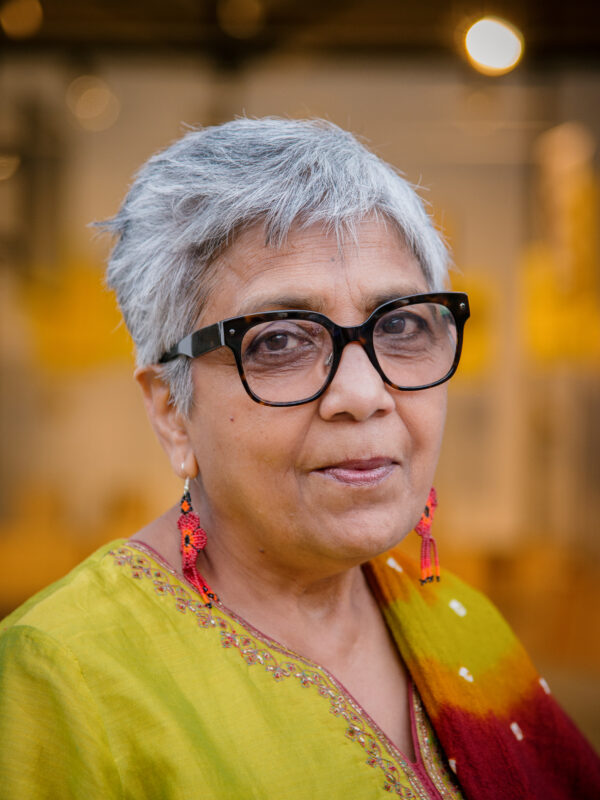
Radha D'Souza
Writer, academic, lawyer and activist
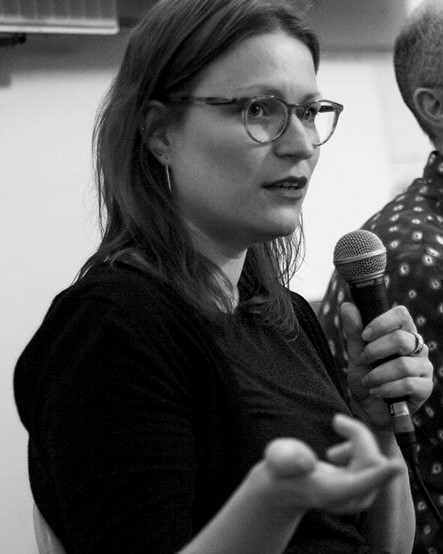
Irene de Craen
Writer, researcher and curator
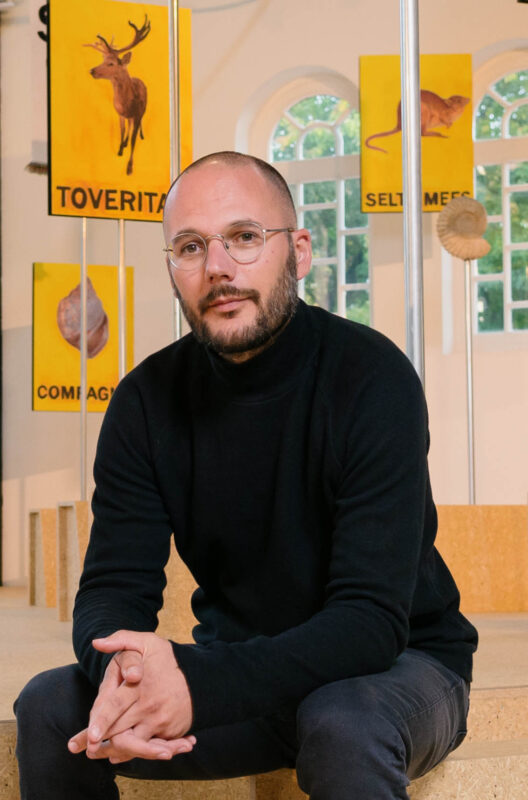
Jonas Staal
Artist
Magazine
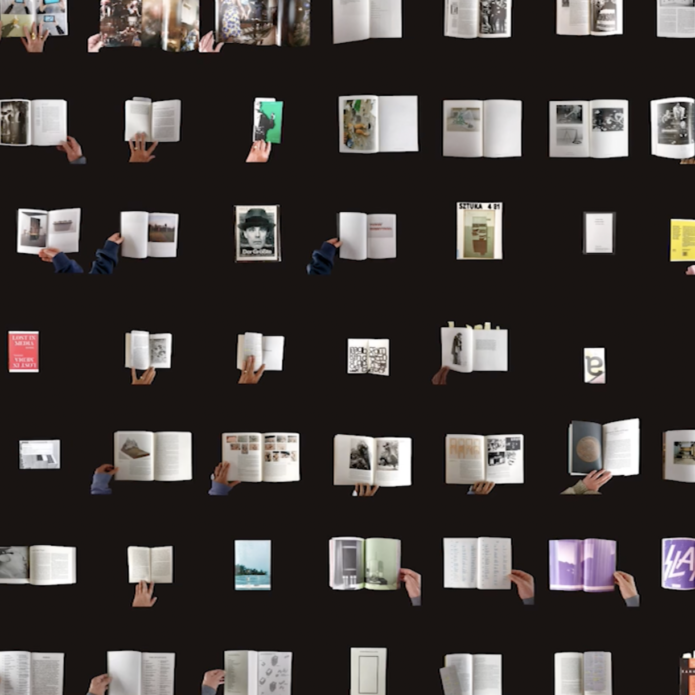

Bookshop Selection: Court for Intergenerational Climate Crimes
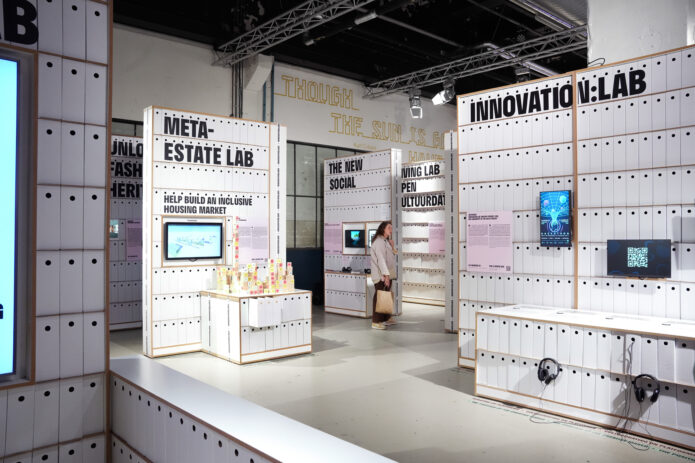
The New Social: Hybrid Strategies for Cultural Spaces - at Dutch Design Week 2023
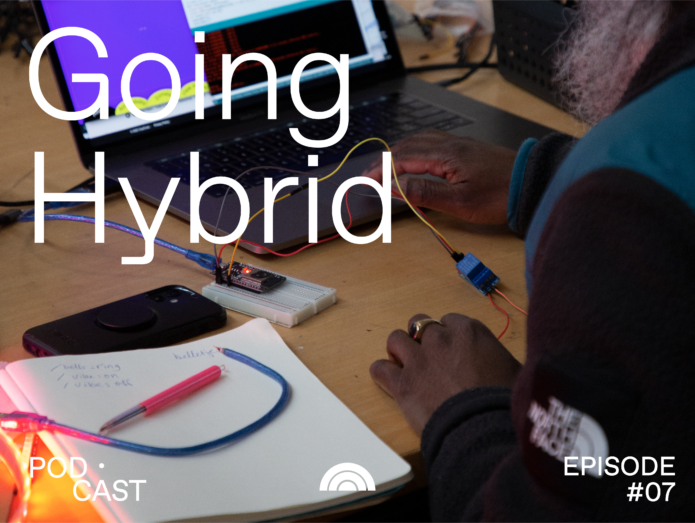
Podcast: Going Hybrid - A Deep Dive into Cultural Publishing and Programming
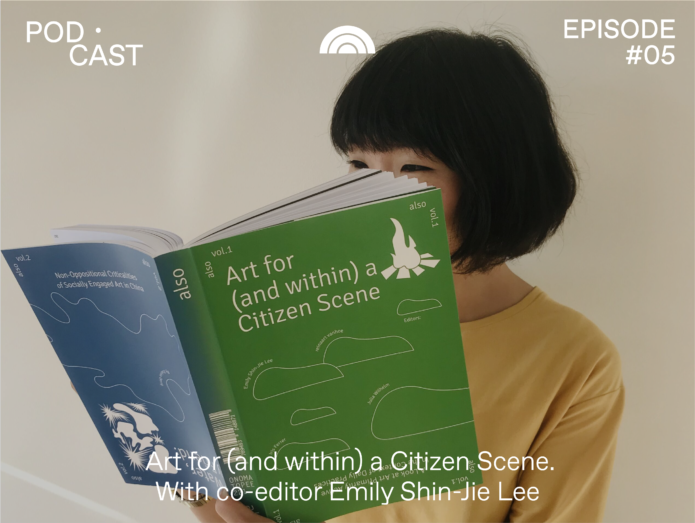
Podcast: Emily Shin-Jie Lee on the making of 'Art for (and within) a Citizen Scene'

Podcast: Subversive Publishing Strategies

